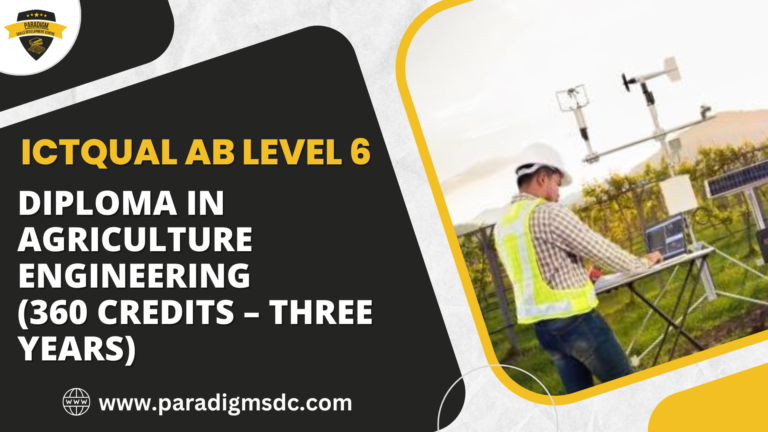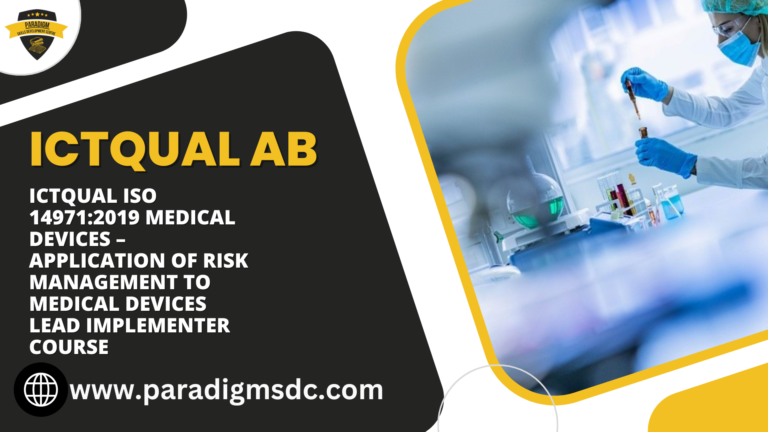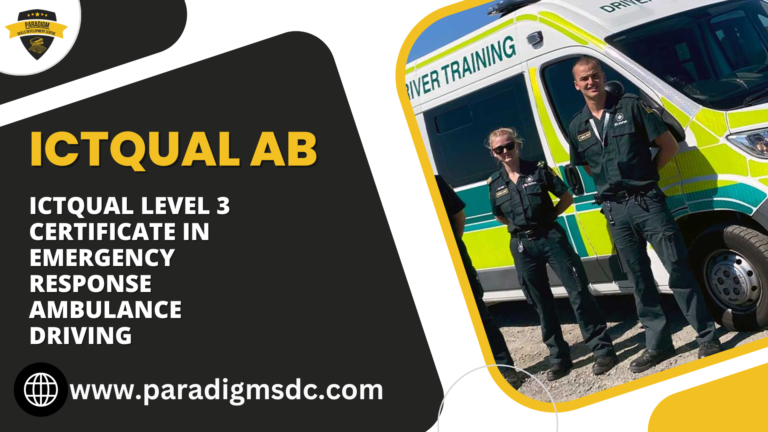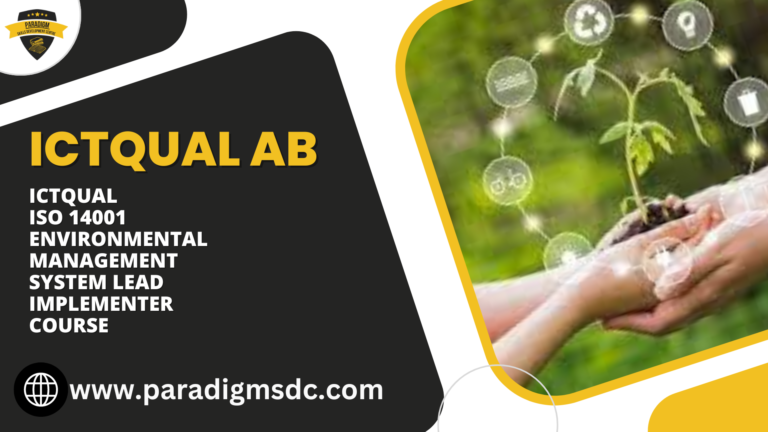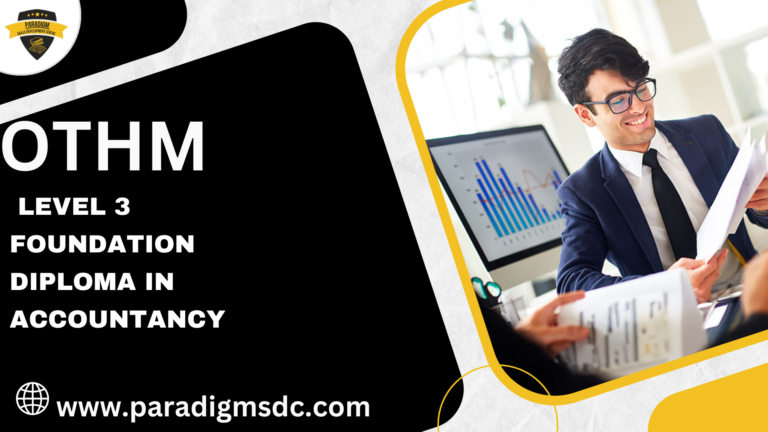Course Introduction
The ICTQual ISO 21001 Educational Organizations Management System Internal Auditor Course is designed to equip professionals with the knowledge and skills necessary to conduct internal audits of educational organizations in accordance with the ISO 21001 standard. This course is ideal for individuals seeking to enhance their understanding of educational management systems and improve the quality and effectiveness of educational services.
Course Overview
This comprehensive course covers the fundamentals of ISO 21001, focusing on the principles and requirements of the standard. Participants will learn how to plan, execute, and report on internal audits, ensuring that educational organizations comply with ISO 21001 guidelines. The course combines theoretical knowledge with practical exercises, enabling participants to gain hands-on experience in auditing educational management systems.
Course Study Units
- Introduction to ISO 21001 and Educational Organizations Management Systems
- Understanding the Requirements of ISO 21001
- Internal Auditing Principles and Practices
- Audit Techniques and Tools for ISO 21001
- Risk Management in Educational Organizations
- Performance Measurement and Evaluation
- Change Management and Continual Improvement
- Legal and Regulatory Compliance
- Stakeholder Engagement and Communication
Learning Outcomes
By the end of the course, participants will be able to:
- Introduction to ISO 21001 and Educational Organizations Management Systems
- Understand the purpose, scope, and benefits of ISO 21001.
- Define key concepts and terminology related to Educational Organizations Management Systems.
- Identify the relevance of ISO 21001 to educational institutions and stakeholders.
- Recognize the importance of implementing an Educational Organizations Management System for enhancing educational outcomes.
- Understanding the Requirements of ISO 21001
- Interpret and explain the clauses and requirements of ISO 21001.
- Identify the context of the organization and its implications for educational management systems.
- Describe the leadership and commitment requirements for top management.
- Develop a comprehensive understanding of planning, support functions, and operational controls within an Educational Organizations Management System.
- Internal Auditing Principles and Practices
- Understand the principles and benefits of internal auditing within an Educational Organizations Management System.
- Apply principles of auditing, including integrity, impartiality, and competence.
- Plan and conduct internal audits effectively, including audit planning, evidence gathering, and reporting.
- Evaluate audit findings and nonconformities and recommend appropriate corrective actions.
- Audit Techniques and Tools for ISO 21001
- Develop audit checklists based on ISO 21001 requirements.
- Apply various audit techniques, including interviewing, document review, and data analysis.
- Utilize audit tools effectively to gather evidence and assess compliance with ISO 21001 standards.
- Report audit findings accurately and recommend improvements to educational processes.
- Risk Management in Educational Organizations
- Identify risks associated with educational processes and activities.
- Assess and prioritize risks based on their likelihood and potential impact.
- Develop risk treatment plans and strategies to mitigate identified risks.
- Integrate risk management into the Educational Organizations Management System to enhance organizational resilience and effectiveness.
- Performance Measurement and Evaluation
- Establish key performance indicators (KPIs) for educational processes and activities.
- Collect, analyze, and interpret performance data to evaluate the effectiveness of educational programs.
- Report performance findings and communicate results to stakeholders effectively.
- Utilize performance data for decision-making and continuous improvement initiatives within educational institutions.
- Change Management and Continual Improvement
- Manage changes within the Educational Organizations Management System effectively.
- Identify opportunities for improvement and innovation within educational processes.
- Implement corrective actions and preventive measures to address nonconformities and enhance system performance.
- Foster a culture of continual improvement and learning within educational institutions.
- Legal and Regulatory Compliance
- Identify relevant laws, regulations, and standards applicable to educational organizations.
- Ensure compliance with legal and regulatory requirements related to educational management systems.
- Develop processes for monitoring and maintaining compliance with applicable laws and regulations.
- Address non-compliance issues and implement corrective actions as necessary.
- Stakeholder Engagement and Communication
- Identify key stakeholders and their interests in educational processes.
- Develop strategies for engaging stakeholders and soliciting their input and feedback.
- Communicate effectively with stakeholders to ensure transparency and collaboration.
- Build positive relationships with stakeholders to support the goals and objectives of the Educational Organizations Management System.
Course Benefits
- Enhanced Knowledge: Gain a thorough understanding of ISO 21001 and its application in educational organizations.
- Practical Skills: Develop practical auditing skills through hands-on exercises and real-world scenarios.
- Professional Growth: Improve your career prospects by becoming a certified internal auditor for educational organizations.
- Quality Improvement: Contribute to the continuous improvement of educational services and organizational effectiveness.
Who is this Course For?
- Educational Professionals: Administrators, managers, and staff involved in educational management and quality assurance.
- Auditors: Internal auditors and quality assurance professionals seeking to specialize in educational organizations.
- Consultants: Individuals providing consultancy services to educational institutions on quality management and compliance.
- Aspiring Auditors: Professionals looking to start a career in internal auditing within the educational sector.
Future Progression
Upon completing the ICTQual ISO 21001 Educational Organizations Management System Internal Auditor Course, participants can pursue further qualifications and certifications to advance their careers. Potential progression paths include:
- Lead Auditor Training: Enroll in ISO 21001 Lead Auditor courses to conduct external audits.
- Advanced ISO Standards: Explore training in other ISO standards related to educational management and quality assurance.
- Consultancy Roles: Leverage your auditing expertise to provide consultancy services to educational organizations.
- Continuous Professional Development: Engage in ongoing learning and development to stay updated with the latest industry trends and best practices.
Embark on your journey to becoming a proficient internal auditor for educational organizations with the ICTQual ISO 21001 Educational Organizations Management System Internal Auditor Course. Enhance your skills, advance your career, and contribute to the quality and effectiveness of educational services.


